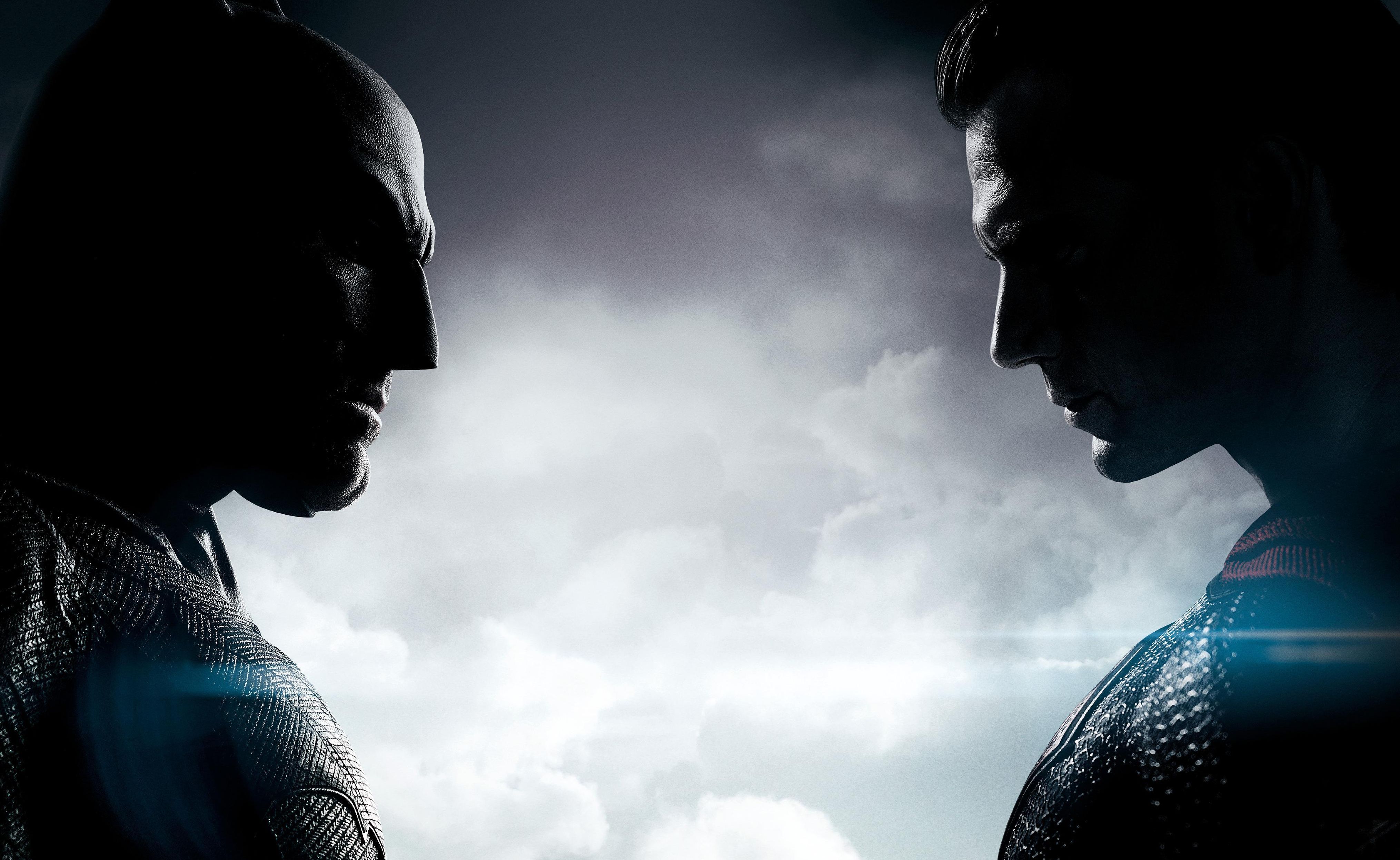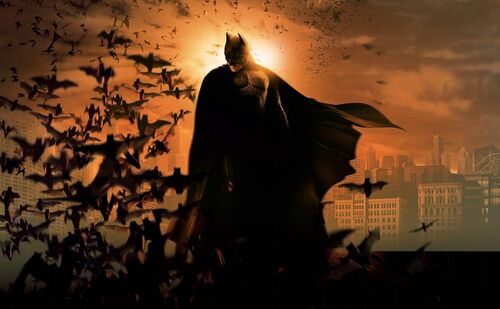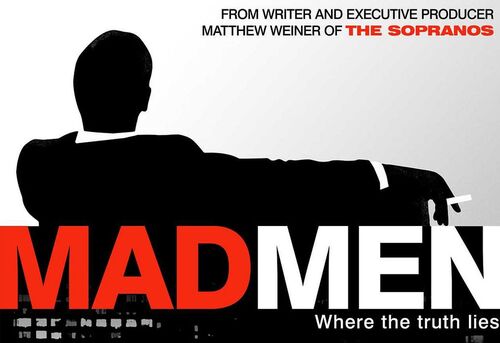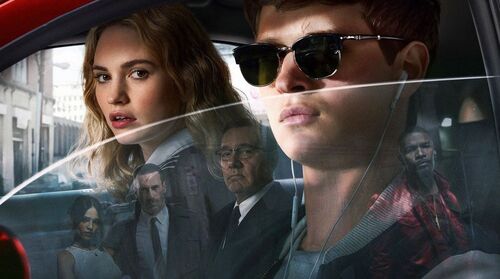
Batman v Superman: Dawn of Justice (2016) Film Review
 Would it be fair to praise Batman v Superman: Dawn of Justice by contrasting it with the faults of Man of Steel? Is it possible that, perhaps, Superman as a character can't carry a film on his own, as Zack Snyder and Warner Bros. hoped he could?
Would it be fair to praise Batman v Superman: Dawn of Justice by contrasting it with the faults of Man of Steel? Is it possible that, perhaps, Superman as a character can't carry a film on his own, as Zack Snyder and Warner Bros. hoped he could?
Whatever the flaws of Man of Steel are, they have been righted in its sequel. It might be safe to go so far as to claim that Batman v Superman expands on Man of Steel to make the latter's final act events all the more tolerable. Here though, there is no excess in action, no exhaustion at the end of a marathon that you just wished would end. Snyder claimed that his new film is a drama, first and foremost, and there's a lot of evidence to say that he's right.
The title promises a fight night, and the trailers threw it all at us. But the context for all that action was being hidden from view. Batman v Superman balances its time between questions of morality and questions of philosophy, and they're often welded into a more complex question, one the film can't answer but maybe it's because it's a near impossible question to answer. Superman as a symbol is a theme Man of Steel played with, but Superman as a god figure is at the core of its sequel, a theme that a Batman for a new universe ponders, with both commitment and a narrow mind.
Ben Affleck as Bruce Wayne presents the most morally ambiguous portrayal of the character on screen to date, and despite the early outset teasing a heavily Bat-centric feature, he becomes but a grounding anchor as his and our own world grows with the knowledge of meta-human presence. As a brutal manifestation of criminal vigilantism parading as justice, this is clearly a Bruce Wayne who has fought a lifetime of wars on the streets of Gotham, but he finally feels his defining moment has arrived when a being capable of destroying the planet flies among civilians. Affleck validates his casting to the doubters with his performance, but at this point it's hard to believe that public outcry still exists when actors time and again prove themselves capable.
Both characters have well considered motives and the events that lead to their clash are cleverly mapped out, unraveling at a brisk but comfortable pace. The film only ever slows down in order to explore its deeper, mythological musings, often by the voice of Jesse Eisenberg's Lex Luthor, whose brilliance is contradicted by a child-like demeanor. But layers are required for the best villains, and in so few words the script makes it possible to understand him, at least to any extent that we can. The character is a reinterpretation of its comic-book counterpart, in much the same way as Heath Ledger's Joker took liberties that aided its transition from page to screen. Eisenberg very rarely falters in his performance, often managing to gravitate attention to only him much in the way the character would do so himself. He seems to own it, and he certainly seems to have wanted to.
Gal Gadot's arrival as Wonder Woman presents an exotic, mysterious woman with a past that's alluded to, but left in the hands of those behind next year's origin tale. The character is certainly a scene-stealer in the film's final act, an act that averts expectations and rewards with a payoff for an unexpectedly, thematically complex narrative to that point. The film manages the female god prior to her arrival with the care that you'd expect if no one knew that the reveal was coming, but the film is better for it. Jeremy Irons as Alfred is witty, providing a similar relationship with similar chemistry as past iterations of the iconic Bruce/Alfred pairing, but in very unfamiliar ways.
While Snyder tones down on the jarring techniques that over-complicated Man of Steel's multiple, literal punchlines, it is still on occasion difficult to keep up with the pile of bodies intermingled with the rubble. By contrast, there is one action sequence so beautifully filmed it's a shame not to see more of it, but in the film's defense the scene in question required an element of disassociation.
A good film, above all else, tells its story seamlessly, clearly, and engagingly. A film like this has added difficulties. This is an introduction to an entire expanded universe, and it alludes to prequels and sequels alike while teasing the future of the franchise so simply that it's hard to believe they made it look so easy. There's nothing to get lost in the abyss for newcomers, but plenty to spark debate. And for seasoned comic book fans, hints at what's to come will only drive anticipation for next year's film all the more. What Batman v Superman does demand is a little more patience than the genre typically requires, but the story ensures that the right things have been sacrificed to better serve the film and genre.
Affleck may have made the role of Batman his own, but Henry Cavill's second turn as Superman is a riveting exploration of a character that's so historically good, it's hard to picture his purity being the cause of mayhem. But the character's development over the course of the two films reaches a peak that encapsulates what franchise filmmaking can mean for a character. The only dampening facet of this side of the story might, again, be Lois Lane (Amy Adams). The character has a slightly heightened role in the film, though her frequent need for rescuing is near infuriating. The only silver lining comes from Gal Gadot, who overshadows her. Unfortunately, the film fails to give us a mortal female presence, though in Alfred's words, it seems here that it's not for a lack of trying. It may well be a narrative shortcoming. An insistence to use the character but a lack of meaningful things for her to actually do.
At a fundamental level, the flaws of Man of Steel can be whittled down to its writing; a reliance on dramatic, clunky dialogue and on-the-nose telling rather than showing, on top of the feeling that the story ran out of steam two-thirds of the way in. Here, the dialogue has been toned down. The pacing has been smoothed. The action is purposeful, even restrained, but always committed. Hans Zimmer expands on his beautiful Superman theme while he and Junkie XL provide an expectedly loud and powerful musical score to fuel the epic carnage. The difference is, the carnage is mostly internal (not that there isn't plenty of literal chaos). But the film never forgets its characters, and the film is book-ended poetically to create a lasting poignancy.
For Zack Snyder, this may just be his magnum opus, his greatest achievement so far. Bouncing back from shaky beginnings for DC's new world, Batman v Superman: Dawn of Justice achieves everything it set out to do, but ties the superhero genre firmer than ever to greek mythology, religion, concepts of higher beings that have always simmered below the entire make-up of what a superhero encompasses. The future is bright for the DC universe, even in this dim, cloudy world that these iconic heroes populate.


